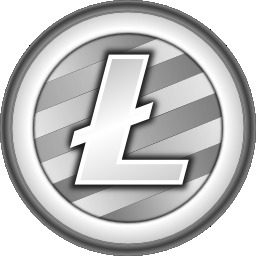Comparar Bitcoin Cash (BCH) vs Litecoin (LTC) Coin
In the evolving landscape of digital currencies, Bitcoin Cash (BCH) and Litecoin (LTC) have carved a noteworthy reputation for themselves. As both aim to ease daily transactions with faster speed and lower costs, it's essential to delve into their differences and similarities, exploring their unique attributes and potential for future growth.
User rating
Cryptogeek rating
Pontuação de Confiança
Como funciona
Sobre
|
O Bitcoin Cash é o hard fork do Bitcoin mais popular proposto por Roger Ver em 2017 como uma solução para o problema de transações lentas na rede Bitcoin. A idéia era criar uma versão do Bitcoin que seria melhor para pagamentos, enquanto o Bitcoin original é considerado mais uma reserva de valor. O Bitcoin Cash tem um tamanho de bloco maior que o Bitcoin, portanto as transações dessa moeda são mais rápidas e baratas. Por outro lado, requer mais recursos para executar o nó completo do Bitcoin Cash, o que o torna mais vulnerável à centralização. O Bitcoin Cash rapidamente atraiu um grande número de seguidores e se tornou uma parte importante do mercado de criptomoedas. O BCH está disponível em muitas trocas e é suportado por vários serviços de criptografia. Desde o lançamento do projeto, ele nunca saiu do top 10.
|
O Litecoin foi criado em 2011 por um funcionário do Google, Charlie Lee. Atualmente, essa criptomoeda é uma das maiores em capitalização de mercado. O Litecoin foi criado como um dos primeiros garfos da blockchain Bitcoin. Além disso, é seguro dizer que o Litecoin é um dos primeiros altcoins. Enquanto o Bitcoin é baseado no algoritmo SHA-256, o Litecoin utiliza um algoritmo de criptografia mais leve.
|
Tipo
Data de fundação
País
|
International
|
International
|
Idiomas
Time
Protocolo
|
Public blockchain
|
Public blockchain
|
Preço atual (USD)
Recorde histórico (USD)
Mudança de Preço (24h)
Volume (24h)
|
26314065.27526
|
16332900.01647
|
Hashrate
Estoque Máximo
|
21000000.00000
|
84000000.00000
|
Oferta total
Estoque em Circulação
|
19920587.39665
|
76259708.23347
|
Velocidade de transação/ Tempo de Bloco
Taxa de transação
Rentabilidade de mineiração
Algoritmo
Tipo de prova
Totalmente pré-definido
Endereço de contrato inteligente
Total de moedas extraídas
|
18462627.14680
|
65464957.99676
|
Está negociando
Recompensa de bloco
|
6.250000000000
|
12.500000000000
|
Hora do bloco
| Sobre |
O Bitcoin Cash é o hard fork do Bitcoin mais popular proposto por Roger Ver em 2017 como uma solução para o problema de transações lentas na rede Bitcoin. A idéia era criar uma versão do Bitcoin que seria melhor para pagamentos, enquanto o Bitcoin original é considerado mais uma reserva de valor. O Bitcoin Cash tem um tamanho de bloco maior que o Bitcoin, portanto as transações dessa moeda são mais rápidas e baratas. Por outro lado, requer mais recursos para executar o nó completo do Bitcoin Cash, o que o torna mais vulnerável à centralização. O Bitcoin Cash rapidamente atraiu um grande número de seguidores e se tornou uma parte importante do mercado de criptomoedas. O BCH está disponível em muitas trocas e é suportado por vários serviços de criptografia. Desde o lançamento do projeto, ele nunca saiu do top 10.
|
O Litecoin foi criado em 2011 por um funcionário do Google, Charlie Lee. Atualmente, essa criptomoeda é uma das maiores em capitalização de mercado. O Litecoin foi criado como um dos primeiros garfos da blockchain Bitcoin. Além disso, é seguro dizer que o Litecoin é um dos primeiros altcoins. Enquanto o Bitcoin é baseado no algoritmo SHA-256, o Litecoin utiliza um algoritmo de criptografia mais leve.
|
| Tipo |
Tipo
coin
|
Tipo
coin
|
| Data de fundação |
Data de fundação
2017
|
Data de fundação
2011
|
| País |
País
International
|
País
International
|
| Idiomas |
Idiomas
Sem dados
|
Idiomas
Sem dados
|
| Time |
Time
Public
|
Time
Public
|
| Protocolo |
Protocolo
Public blockchain
|
Protocolo
Public blockchain
|
| Preço atual (USD) |
Preço atual (USD)
600.7969
|
Preço atual (USD)
113.0772
|
| Recorde histórico (USD) |
Recorde histórico (USD)
4355.6200
|
Recorde histórico (USD)
375.2900
|
| Mudança de Preço (24h) |
Mudança de Preço (24h)
3.21
|
Mudança de Preço (24h)
1.60
|
| Volume (24h) |
Volume (24h)
26314065.27526
|
Volume (24h)
16332900.01647
|
| Hashrate |
Hashrate
2653000000
|
Hashrate
165730
|
| Estoque Máximo |
Estoque Máximo
21000000.00000
|
Estoque Máximo
84000000.00000
|
| Oferta total |
Oferta total
Sem dados
|
Oferta total
Sem dados
|
| Estoque em Circulação |
Estoque em Circulação
19920587.39665
|
Estoque em Circulação
76259708.23347
|
| Velocidade de transação/ Tempo de Bloco |
Velocidade de transação/ Tempo de Bloco
116
|
Velocidade de transação/ Tempo de Bloco
56
|
| Taxa de transação |
Taxa de transação
Sem dados
|
Taxa de transação
Sem dados
|
| Rentabilidade de mineiração |
Rentabilidade de mineiração
low
|
Rentabilidade de mineiração
low
|
| Algoritmo |
Algoritmo
SHA-256
|
Algoritmo
Scrypt
|
| Tipo de prova |
Tipo de prova
PoW
|
Tipo de prova
PoW
|
| Totalmente pré-definido |
Totalmente pré-definido
Sem dados
|
Totalmente pré-definido
Sem dados
|
| Endereço de contrato inteligente |
Endereço de contrato inteligente
Sem dados
|
Endereço de contrato inteligente
Sem dados
|
| Total de moedas extraídas |
Total de moedas extraídas
18462627.14680
|
Total de moedas extraídas
65464957.99676
|
| Está negociando |
Está negociando
yes
|
Está negociando
yes
|
| Recompensa de bloco |
Recompensa de bloco
6.250000000000
|
Recompensa de bloco
12.500000000000
|
| Hora do bloco |
Hora do bloco
600
|
Hora do bloco
150
|
Social
Site
Twitter
Vantagens
|
Scalable
Highly Efficient
Easy To Acquire
|
Open-source Network
Decentralized
Transactions Fees
|
Desvantagens
|
Branding Issues
|
Has some branding issues
|
Avaliação
| User rating |
User rating
4.4 / 5
7 avaliações do usuário
|
User rating
5 / 5
5 avaliações do usuário
|
| Cryptogeek rating |
Cryptogeek rating
4 / 5
|
Cryptogeek rating
3.4 / 5
|
| Vantagens |
Vantagens
Scalable
Highly Efficient
Easy To Acquire
|
Vantagens
Open-source Network
Decentralized
Transactions Fees
|
| Desvantagens |
Desvantagens
Branding Issues
|
Desvantagens
Has some branding issues
|
A avaliação de Bitcoin Cash (BCH) usuários é de 4.4, com base em 7 avaliações de usuários. A avaliação de Litecoin (LTC) usuários é de 5, com base em 5 avaliações de usuários.
We also calculate the special Cryptogeek TrustScore based on the characteristics of each coin.
Escolha outras empresas
Thus, after comparing Bitcoin Cash and Litecoin's unique attributes, it's clear that while both offer their distinct advantages, the choice between the two depends largely on the individual's specific needs and preferences. As this dynamic industry continues to grow, each of these digital currencies will undoubtedly continue to evolve and refine their functionalities, potentially reshaping their competitive geography.
In the evolving landscape of digital currencies, Bitcoin Cash (BCH) and Litecoin (LTC) have carved a noteworthy reputation for themselves. As both aim to ease daily transactions with faster speed and lower costs, it's essential to delve into their differences and similarities, exploring their unique attributes and potential for future growth.

